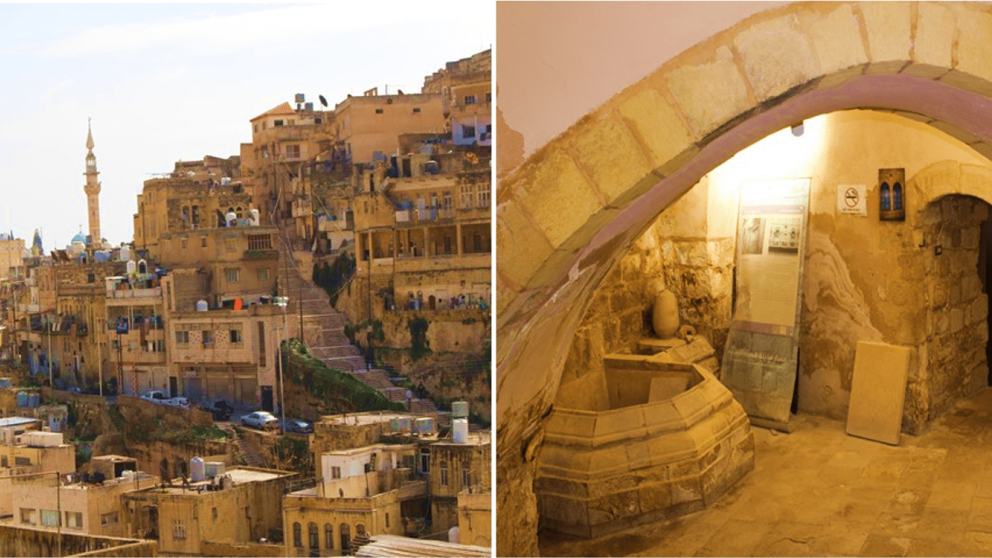University of Salford academics transform Jordan’s heritage using building information modelling

Salford academics have been busy in Jordan supporting the transformation of the local architectural heritage (post-1750) by using Building Information Modelling. The University of Salford is the lead consortium partner involved in Architectural Urban Heritage project that is funded by the Royal Academy of Engineering.
On Sunday 20th of February 2022, the research team held the third stakeholder engagement meeting in the Greater Amman Municipal Authority that brought together project collaborators from the University of Salford, London South Bank University, the University of Salerno (Italy) and Applied Science Private University (Jordan).
Jordan has a unique traditional architecture influenced by its rich culture, climate, the local availability of construction materials and reflecting local traditions. The project team conducted digital documentation of one of Amman’s most notable traditional heritage houses, the Beit Al-Fann in Amman (House of Art) and the Qaqish House in As-Salt.
Dr Claudia Trillo, Principal Investigator at the University of Salford said: "Jordan architectural heritage is amazing, and it is a privilege for us to contribute to its conservation. We have demonstrated how Digital Technologies can be used to raise awareness, promote heritage, and support conservation planning. Our platform has been developed with the University of Salerno and is now open to the public.
"This Royal Academy of Engineering grant has been instrumental to create a very strong network of local and international stakeholders and industrial partners, which will remain a strong legacy from this project in form of Centre of Excellence for Digital Technologies and Jordanian Heritage Conservation."
Contributors included the Jordanian Tourist Board and the Ministry of Cultural Affairs and Tourism, and Salford Academics demonstrated in the event 3D models of the two heritage buildings of national importance. The data and drawings from the 3D laser scan were inserted into Autodesk Revit to create BIM (Building Information Modelling) models.
This was the third and final Workshop in which researchers and experts worked collaboratively to identify challenges and opportunities for the application of Digital Technologies on Heritage Conservation in Jordan. The workshop also helped to refocus the mission of the Centre of Excellence (COE) in Jordan, a platform proposed for the documentation and knowledge sharing of international best practices on Urban Architectural Heritage.
The stakeholder workshops are part of a research project that brings together multiple stakeholders across Jordan, Italy and the United Kingdom. These stakeholders include those working at local, national and international levels with an interest in, and particularly with influence over, processes that can support inclusive digitalization of cultural heritage in Jordan. Stakeholders are both co-producers of knowledge generated through the research process, and target audience who can utilise the findings that emerge from the research.
The project has been developed through a partnership with the Surveying Technologies and Services Company Ltd. (SurveyTEQ), Jordan, Eng Qasem Al-Betar and the ThinkLab at the University of Salford, United Kingdom
The research team:
- Dr Claudia Trillo, Principal Investigator, University of Salford
- Dr Rania Aburamadan, Principal Investigator, Middle East University, Jordan
- Professor Chika Udeaja, Co-Investigator, London South Bank University
- Dr Athena Moustaka, Co-Investigator, University of Salford
- Dr Kwasi Gyau, Co-Investigator, University of Salford
- Dr Chiko Ncube Makore, Research Assistant, University of Salford
For all press office enquiries please email communications@salford.ac.uk.
Share:
